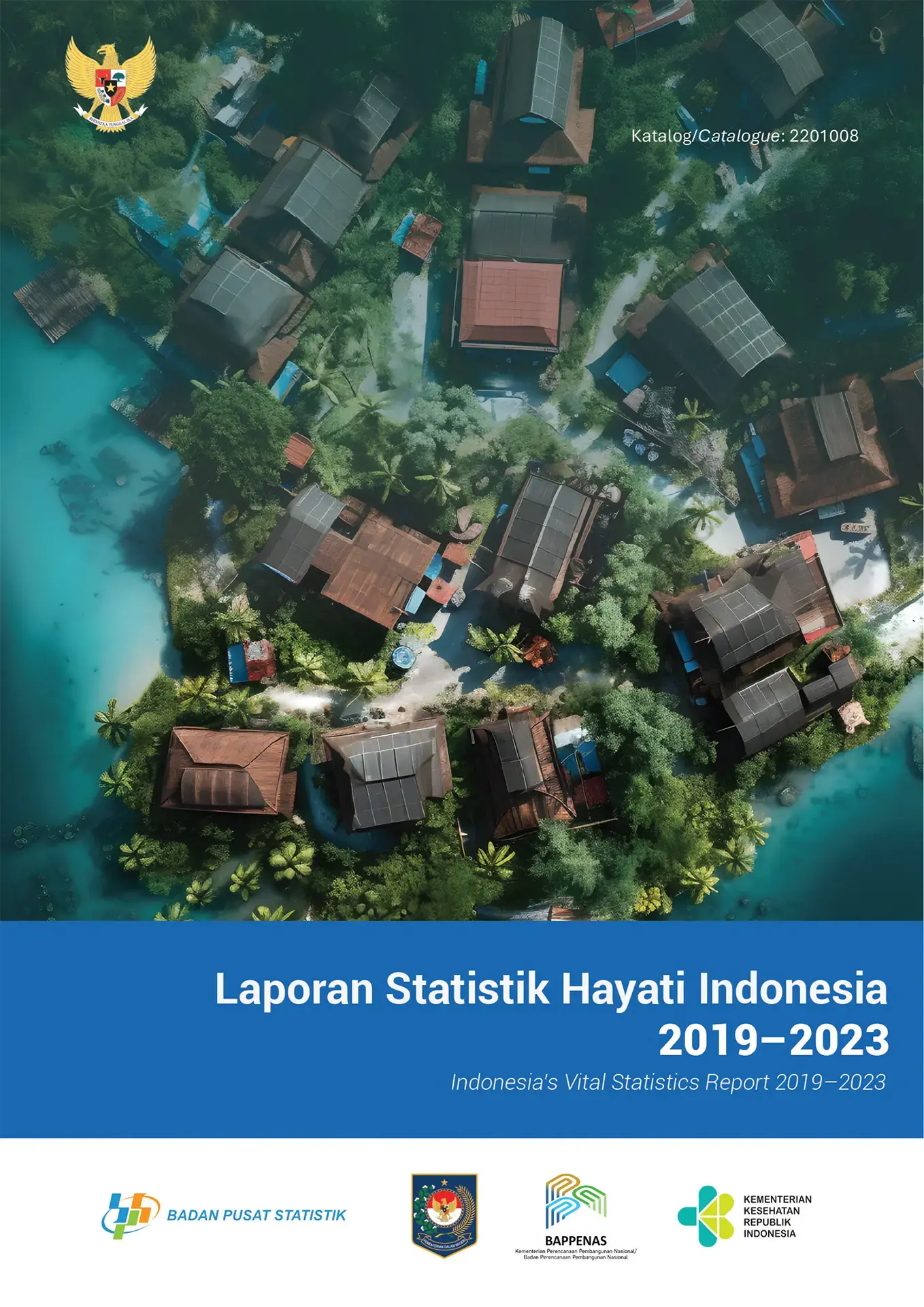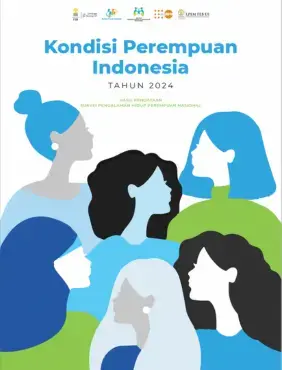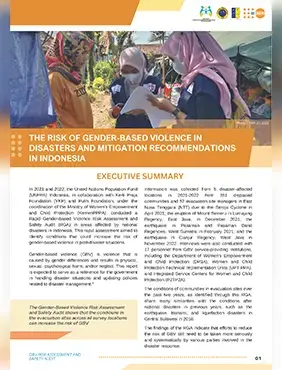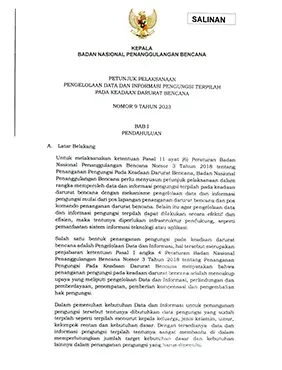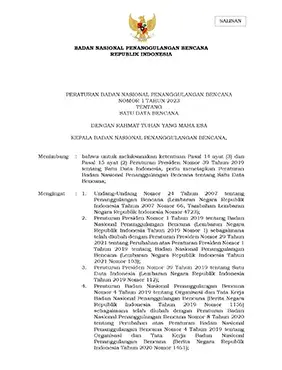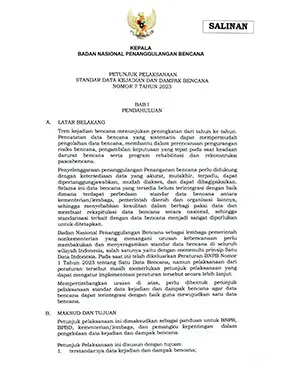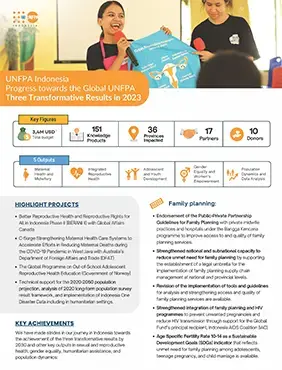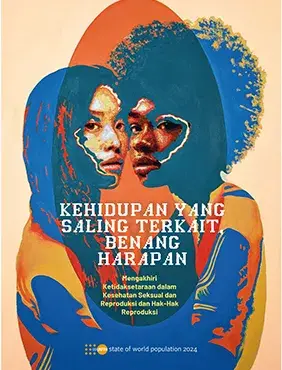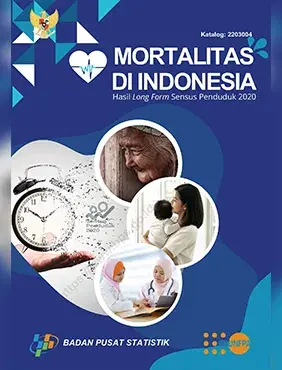Publications
Publications
Publication
Laporan Statistik Hayati Indonesia 2019–2023
Laporan Statistik Hayati Indonesia 2019–2023/Indonesia’s Vital Statistics Report 2019–2023 highlights progress in birth and death registrations from 2019 to 2023, with 62.11% of bi...
Read more
Publication
Survei Pengalaman Hidup Perempuan Nasional (SPHPN) 2024
Survei Pengalaman Hidup Perempuan Nasional (SPHPN) adalah sebuah survei khusus berskala nasional yang mengumpulkan data komprehensif mengenai prevalensi berbagai bentuk kekerasan y...
Read more
Technical Reports and Document
The Risk of Gender-Based Violence in Disasters and Mitigation Recommendations in Indonesia
In 2021 and 2022, the United Nations Population Fund (UNFPA) Indonesia, in collaboration with Kerti Praja Foundation (YKP) and Pulih Foundation, under the coordination of the Minis...
Read more
Technical Reports and Document
BNPB Technical Guideline No. 9/2023 on The Sex, Age, and Disability, Disaggregated Data (SADDD) Management
The BNPB Technical Guideline on Sex, Age, and Disability, Disaggregated Data (SADDD) Management offers a framework for collecting, analyzing, and using data that considers the dive...
Read more
Technical Reports and Document
BNPB Regulation No. 1/2023 on Indonesia One Disaster Data
BNPB Regulation No. 1/2023 on Indonesia One Disaster Data establishes a standardized framework for collecting, managing, and utilizing disaster-related data in Indonesia. It aims t...
Read more
Technical Reports and Document
BNPB Technical Guideline No. 7/2023 on Standard Data Disaster Events and Impacts
The BNPB Technical Guideline on Standard Data Disaster Events and Impacts provides a standardized framework for collecting, analyzing, and reporting data related to disasters in In...
Read more
Annual Report
UNFPA Indonesia Annual Report 2023
We have made strides in our journey in Indonesia towards the achievement of the three transformative results by 2030 and other key outputs in sexual and reproductive health, gender...
Read more
State of World Population Report
Kehidupan yang Saling Terkait, Benang Harapan: Mengakhiri Ketidaksetaraan dalam Kesehatan Seksual dan Reproduksi dan Hak-Hak Reproduksi
Pencapaian sejak tahun 1994 telah banyak, tetapi kita harus melangkah lebih jauh. Berkali-kali, dunia telah melihat bahwa upaya untuk menghapuskan hasil kesehatan yang buruk dan me...
Read more
Technical Reports and Document
Mortalitas di Indonesia Hasil Long Form Sensus Penduduk 2020
To address the challenges posed by Indonesia's rapidly changing social and population dynamics, the 2020PC introduces several new innovative approaches not utilized in previous...
Read more

